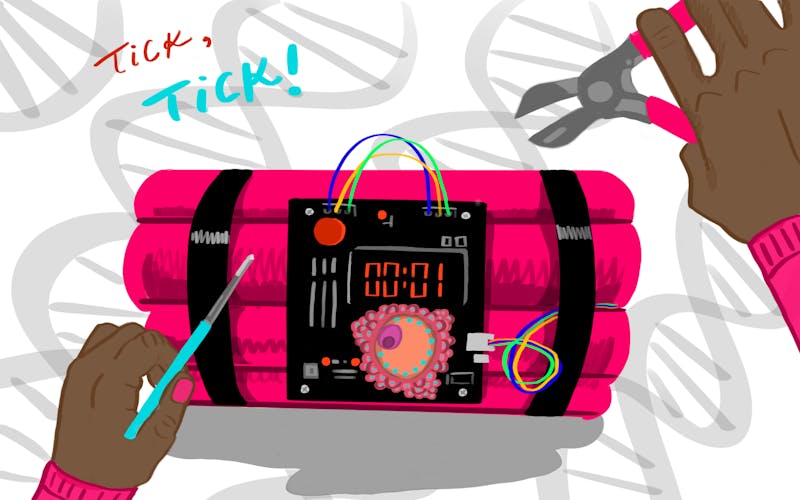Listen to the article
Groundbreaking Research Challenges Women’s “Biological Clock” Myth
New scientific evidence is upending long-held beliefs about reproductive aging, suggesting that men, rather than women, may face a more significant biological clock when it comes to having children.
A recent study published in Science Advances by Penn State researchers has found that women’s eggs are more stable against age-related DNA mutations than men’s sperm, challenging conventional wisdom about female fertility declining with age.
The researchers discovered that mitochondrial DNA in human egg cells mutates less frequently and with less severe consequences than in other body cells. This protective mechanism appears to be an evolutionary safeguard that helps maintain egg cell quality as women age.
“What this means is that men, more so than women, have a ticking biological clock,” explains the study, which builds on earlier research published in Nature in 2012. That foundational study revealed that while both parents pass along mutations accumulated during their lifetimes, the father’s age is the most significant predictor of a child’s number of inherited mutations.
These findings contradict centuries of medical thinking that has consistently placed the burden of reproductive challenges on women. From ancient Greek medicine blaming infertility on women’s misaligned cervix to 19th-century Harvard doctors claiming female education caused reproductive problems, society has historically directed blame at women rather than considering both partners’ contributions.
A 2019 study in the journal Maturitas further explored the reproductive consequences of “advanced paternal age” – fatherhood after 35 or 45 – finding issues similar to those well-documented in aging mothers: decreased fertility, increased pregnancy complications, and heightened risks of birth defects, childhood autism, and cancer.
These scientific revelations come at a time when people are increasingly delaying parenthood. While women show growing demand for egg-freezing services, the new research suggests sperm banking might be equally advisable for men planning fatherhood later in life.
The discoveries highlight persistent gender biases in medical research. Women’s health concerns have been historically understudied, with clinical trials often using predominantly male subjects. Recent progress has seen more studies incorporating female animals, but the field still lags in comprehensive research on women’s health.
Other examples of this scientific gender gap abound. Oral contraceptives have been classified as a Group 1 carcinogen since 2008, yet this information has only recently gone viral. Meanwhile, the first oral, nonhormonal male birth control has just entered trial stages as of July 2025 with no noted side effects, highlighting the uneven development of reproductive technology.
Even everyday products reveal similar disparities. Toothpaste is typically formulated for men’s higher-pH saliva, popular period products have been found to cause bodily harm, and car crash test dummies are modeled on the average male body, putting women at higher risk during accidents.
Experts emphasize that continued progress requires keeping science free from ideological constraints. “Science advances best when free from any ideological constraints,” notes Lixing Sun, a research professor in the Department of Biological Sciences at Central Washington University.
As we gain more nuanced understanding of both male and female reproductive biology, families may benefit from more balanced approaches to family planning. Rather than focusing exclusively on maternal age, medical professionals might begin recommending that both partners consider their reproductive timeline and options for preserving fertility when planning for future children.
The ongoing research underscores the importance of equitable scientific inquiry that investigates health concerns affecting all genders, potentially leading to better outcomes for families and challenging long-standing biases in medicine and society.
Verify This Yourself
Use these professional tools to fact-check and investigate claims independently
Reverse Image Search
Check if this image has been used elsewhere or in different contexts
Ask Our AI About This Claim
Get instant answers with web-powered AI analysis
Related Fact-Checks
See what other fact-checkers have said about similar claims
Want More Verification Tools?
Access our full suite of professional disinformation monitoring and investigation tools




5 Comments
This is an important step in addressing gender bias in scientific research, which has historically marginalized women’s health issues. Hopefully these findings will spur further investigation and help improve reproductive care for all.
Do you know if this research has been replicated or if there are plans for additional studies to validate the results? I’d be interested to see how the scientific community responds.
Challenging conventional wisdom is crucial for advancing our understanding of human biology. These findings on the comparative stability of male and female reproductive cells are thought-provoking and could have far-reaching implications.
Fascinating research that challenges long-held assumptions about female fertility and the biological clock. This study highlights the need for a more nuanced, gender-inclusive understanding of reproductive biology. Kudos to the researchers for upending conventional wisdom.
I’m curious to learn more about the potential implications of these findings for family planning and reproductive health policies. It’s an important area that deserves closer scientific scrutiny.